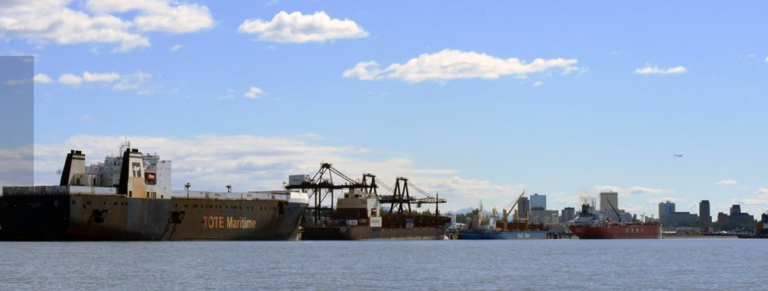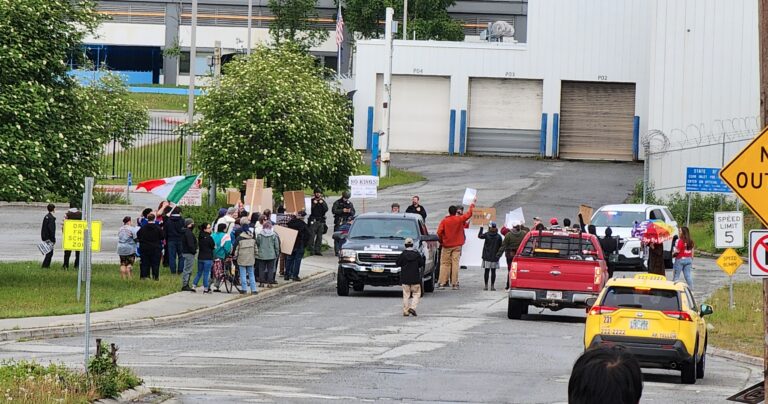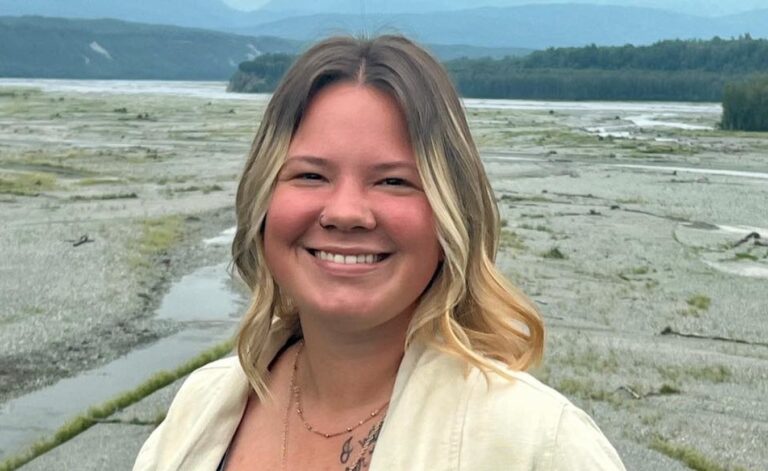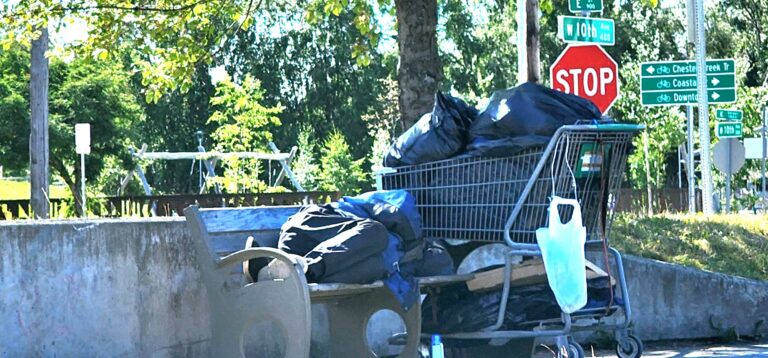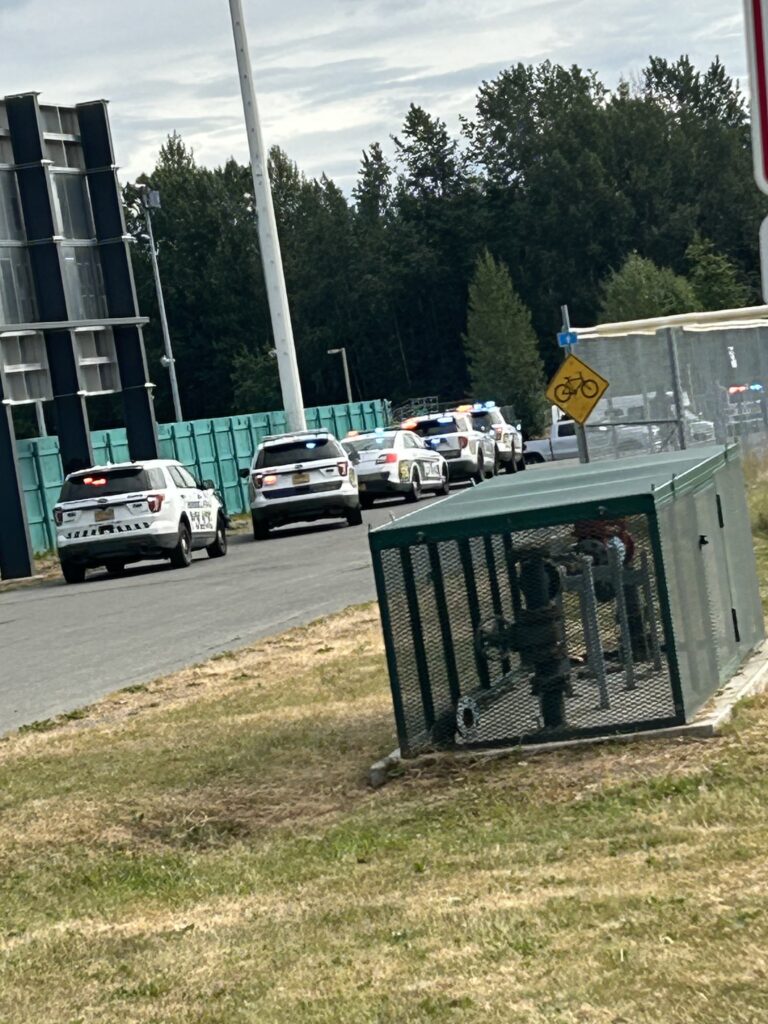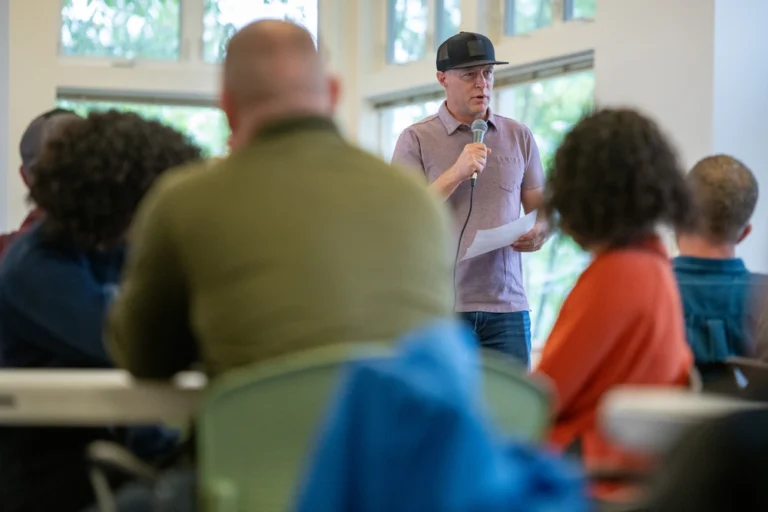Mayor Suzanne LaFrance recently celebrated a $100,000 “Beyond the Beige” public art initiative aimed at brightening up downtown Anchorage, which has fallen into an economic and social funk. The funding, provided by taxpayers through the Anchorage Community Development Authority, will pay artists to create murals and other installations meant to enhance the urban core.
But just a few blocks away from City Hall, at the corner of 4th Avenue and C Street, one of the most visible walls downtown tells a very different story.
In four-foot-high block letters, “NO FASCISM” greets passing vehicles. Nearby, “Free Palestine” is painted across the wall, alongside information for an upcoming anti-government protest scheduled for August 2 at City Hall, titled “Rage Against the Regime.” It even has a swastika on it, with a slash mark through it.
The messages span the entire wall of the building once home to the Big Ray’s logo at 320 W. 4th Ave., and they face directly into a municipal parking lot managed by the very agency awarding grants for beautification.
The owner of the building, Tommy Tomasi, is in an indeterminate dispute with the city, and this is his way of letting the powers that be know that he’s feeling abused.
He had an agreement with the municipality to use the parking lot to store road equipment in exchange for some improvements to the lot. But then the city decided to charge him for those improvements, sources say. We’ve reached out for his comment. This mural of political radical nonsense, which gets weirder by the day, is his revenge.
As visitors leave the nearby Wildbirch Hotel, owned by former US Sen. Mark Begich and former Department of Revenue Commissioner Sheldon Fischer, this is what they now see. Mark Begich cannot be happy about it after renovating the hotel into a boutique inn.
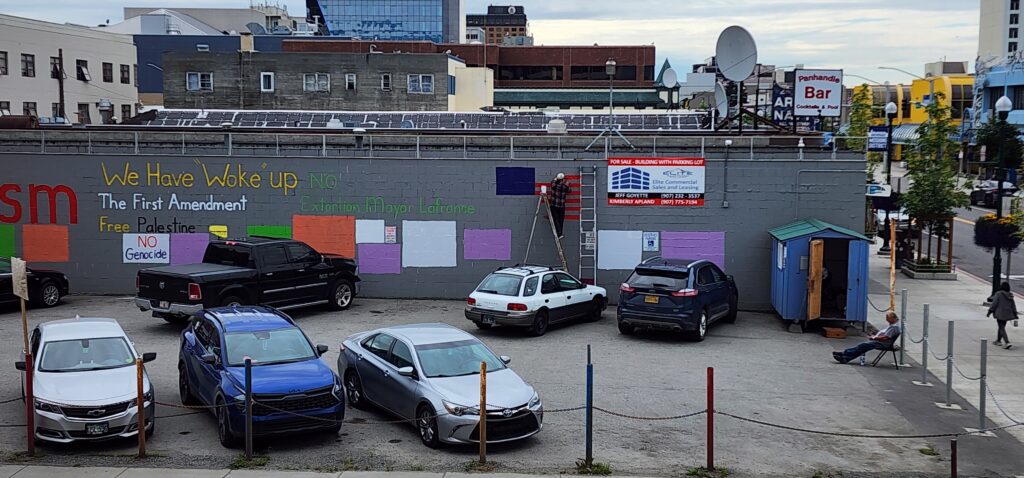
The stretch of 4th Avenue is a key artery for both tourists and commuters, steps away from Anchorage Market, the Performing Arts Center, and the heart of downtown government and commerce. What visitors now see isn’t part of any approved mural project, but instead a rolling canvas of radical messages that appear to be the work of hardline socialists. Not exactly great branding for the city.
The irony is not lost on passersby: While the mayor touts her administration’s commitment to activate public spaces with art, the city’s central intersection has a strange mural being painted by an Anchorage muralist known as Ziggy (Richard Zeigler).
For long-time locals, the wall is a familiar landmark, formerly home to a clean-cut outdoor gear ad for Big Ray’s.
The new official mural grants are part of a broader effort by LaFrance to revitalize the downtown area through cultural engagement. But in this case, the city’s investment in curated art is competing with unsanctioned street expressions just a few of blocks away from the Mayor’s Office.
A recent survey by the Anchorage Community Development Authority, which gathered feedback from nearly 750 residents, found that half of respondents visit Downtown less often than they used to, citing public safety concerns and a sense that the area has become stagnant. Not to mention starting to be the home of aggressive wall warfare.

